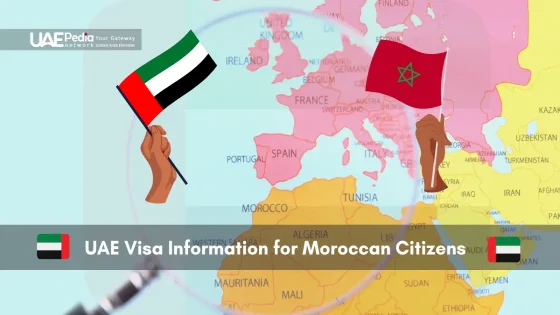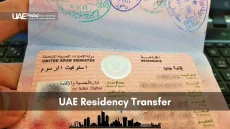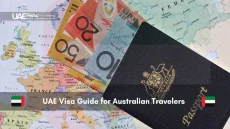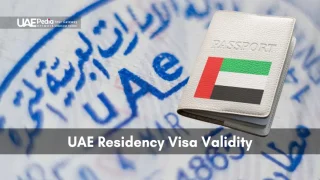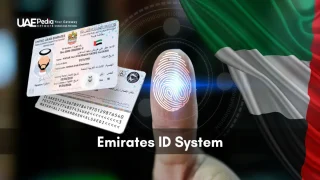Think securing entry to a futuristic desert metropolis requires months of planning? Not quite. Over 50 nationalities can step off their flight and receive an entry permit stamped directly into their passport—no advance applications needed.
Whether you’re drawn to Dubai’s sky-piercing towers or Abu Dhabi’s cultural treasures, understanding your eligibility simplifies the journey. Most travelers receive a 30-day stay approval, extendable by 10 days, while select passports qualify for 90-day access. Just ensure your passport has six months’ validity from your arrival date.
Holders of specific residency permits or diplomatic credentials may have alternate pathways—we’ll unpack those shortly. Regulations shift like desert sands, so confirming details with your nearest Emirati diplomatic office remains essential.
Before you pack those sunglasses:
- 30-day and 90-day entry permits available upon arrival for eligible passports
- Six-month passport validity required for all travelers
- Special exemptions exist for GCC residents and diplomatic passport holders
- Always verify current rules through official channels before departure
Exploring Visa Options and Durations for Entry to the UAE
Picture this: you’re sipping karak chai in a Dubai souk without months of paperwork. For many travelers, that’s reality. Let’s unpack how these entry permits work so you can choose the right fit for your adventure.
Your 30-Day Passport Stamp – Flexibility First
The 30-day entry permit is like a golden ticket for spontaneous explorers. Stamp it at immigration, then extend your stay by 10 days if those desert sunsets convince you to linger. No appointments, no fees paid upfront – just proof of a passport valid for six months.
90-Day Access: Extended Desert Dreams
Prefer slow travel? Nationals from 50+ countries qualify for three-month access. Indian passport holders get a bonus: if you’ve got valid US, UK, or EU residency, you’re eligible too. Perfect for snowbirds escaping winter or digital nomads working between dune tours.
Pro tip: Always confirm your eligibility – rules shift like sand patterns. Got a Schengen visa? You might breeze through faster than a falcon in flight.
Whether you’re here for a whirlwind week or a quarter-year deep dive, these options let you shape your journey. As one frequent visitor told us: “It’s like the Emirates rolled out a red carpet – just bring your passport and curiosity.”
Need more specifics? Our step-by-step visa guide walks you through every checkpoint. Now, where’s that sunscreen?
Eligible Countries and Passport Validity Requirements
Ever wondered how some travelers glide through airport immigration while others queue at embassy counters? Your passport’s power determines this dance. Let’s map out who steps where.
GCC Citizens: Smooth Sailing with National IDs
If your passport bears a Gulf Cooperation Council (GCC) country stamp, you’re golden. Present your national ID card at immigration—no stamps needed. Saudi, Kuwaiti, Qatari, Bahraini, and Omani citizens enjoy this frictionless access, reflecting regional unity.
Non-GCC Travelers: The Six-Month Rule
For others, the magic number is six. Your passport must be valid for at least six months from arrival. Why? The Federal Authority for Identity and Citizenship requires this buffer to cover potential extensions. A German backpacker learned this the hard way: “They turned me back at Dubai Airport—my passport expired in five months.”
Indian citizens get a unique deal. Hold a US visa or Green Card? You qualify for a 14-day stamp. The General Directorate of Residency handles these exceptions. Always carry proof of residency—digital copies won’t cut it if systems glitch.
- GCC nationals: National ID suffices
- All others: Six-month passport validity + return ticket
- Indian passport holders: US/UK/EU residency permits unlock access
Pro tip: Bookmark the Directorate of Residency’s website. Their live chat clarifies murky cases faster than sipping karak tea. As regulations evolve, treat embassy checks as essential as packing sunscreen.
UAE visa on arrival: Requirements and Process
Stepping off the plane into Dubai’s glittering terminal? Let’s turn that arrival adrenaline into action. Here’s how to navigate immigration like a pro and start your Emirates adventure within minutes.
From Landing to Stamped Passport
Follow these steps after deplaning:
- Documents Check: Have your passport (valid 6+ months) and return ticket ready. No photos needed – biometrics handle the rest.
- Designated Counters: Look for “Visa on Arrival” signs. Pro tip: Emirates flight crews often announce which gates process tourist permits.
- Fee Payment: AED 120-150 (≈$33-41) charged per person. Cards accepted, but carrying dirhams speeds things up.
American Travelers’ Cheat Sheet
US passport holders enjoy streamlined access:
- No pre-approval needed if your passport meets validity requirements
- Extensions available through the Federal Authority for Identity and Citizenship – apply 3+ business days before expiry
- Diplomatic/official passport? You qualify for multiple-entry privileges
A recent visitor shared: “I extended my 30-day stamp online while sipping coffee at The Dubai Mall – took 10 minutes!” Always confirm latest fees and required travel documents before flying.
Remember: The General Directorate of Residency handles all extensions. Allow 48 hours for processing during peak seasons. When in doubt, contact your nearest diplomatic office for personalized guidance.
Final Thoughts on Navigating Your UAE Entry Experience
Imagine stepping into a world where golden dunes meet glass skyscrapers – your adventure begins the moment your plane touches down. With the right prep, that first immigration stamp becomes your gateway to discovery. Let’s recap what makes this possible.
Your passport is your golden ticket, needing at least six months validity from your arrival date. Whether you’re here for 30 sun-soaked days or a 90-day deep dive, eligibility hinges on your country of citizenship and documentation. Remember: extensions exist, but always confirm requirements through official channels before packing.
For those exploring employment opportunities, our detailed guide covers additional visa types and processes. US travelers enjoy streamlined access, while GCC residents breeze through with national IDs. Keep digital copies of residency permits handy – tech glitches love to surprise.
The desert teaches adaptability. Regulations shift like sand patterns, so bookmark the Federal Authority’s portal and check embassy updates monthly. Share this guide with fellow wanderers – smooth journeys multiply when knowledge flows freely.
We’ve walked this path countless times, from Abu Dhabi’s Louvre to Ras Al Khaimah’s peaks. Now it’s your turn. Pack curiosity alongside sunscreen, and let uaepedia.net light your way. Adventure awaits – your story starts here.
Citizens from 50+ countries enjoy visa-on-arrival access, including all GCC nationals, most EU members, the UK, US, Australia, and select Asian nations like South Korea. Always verify your specific eligibility through the Federal Authority for Identity and Citizenship portal before travel.
Your passport needs at least six months’ validity from your arrival date. This rule applies to all visitors except GCC citizens, who can enter with national ID cards. Double-check expiration dates – we’ve seen travelers turned away at Dubai Airport over this!
Absolutely! If you’re a resident of Saudi Arabia, Qatar, Oman, Kuwait, or Bahrain, you can score a 30-day visa-on-arrival by showing your GCC residence permit alongside your passport. Pro tip: Carry both physical and digital copies of your residency documents.
Indian nationals with valid US visas/green cards or UK/EU residence permits can obtain 14-day entry stamps. For longer stays, apply online beforehand through the ICA smart service system. Bonus: Those with 10-year US visas get priority processing!
Visit any General Directorate of Residency and Foreigners Affairs office before your current visa expires. Most 30-day visas can be extended twice for 30 days each (AED 600 fee). Some nationalities can now do this through the ICA app – no office visit required!
A> Pack these essentials: passport with 6+ months validity, return/onward ticket, proof of accommodation (hotel booking or host’s address), and travel insurance. While not always requested, having these ready prevents delays – we learned this the hard way during peak travel seasons!

